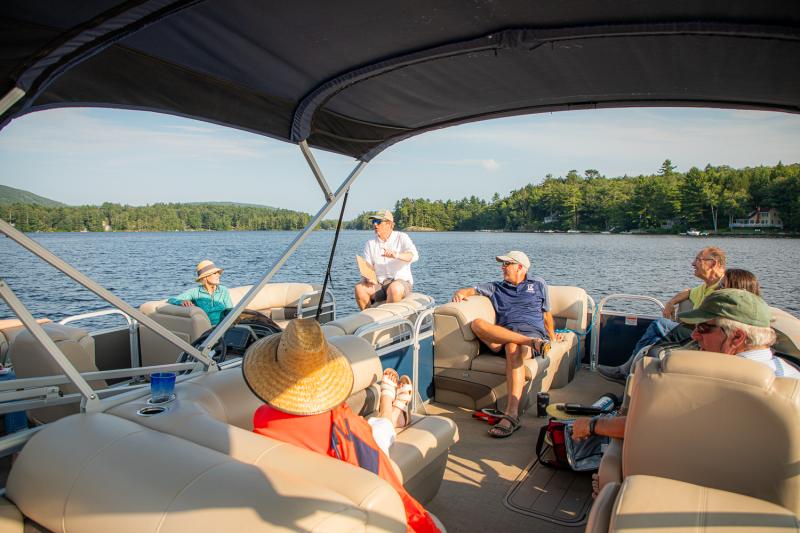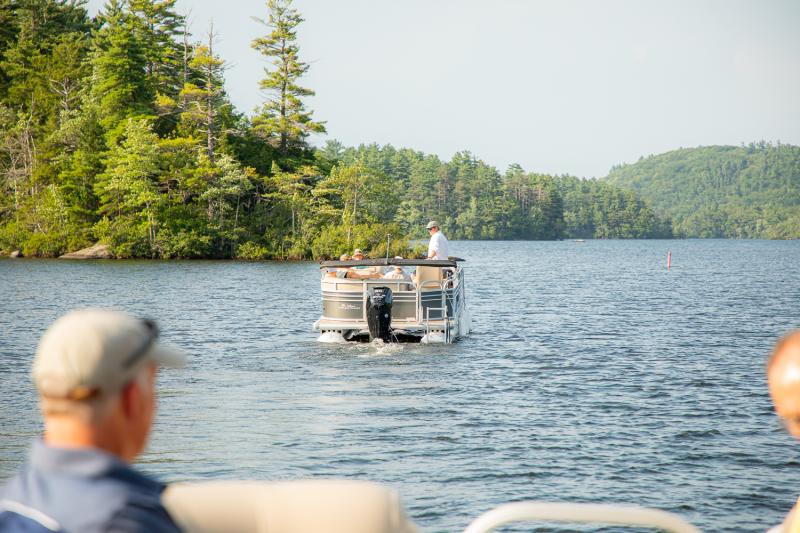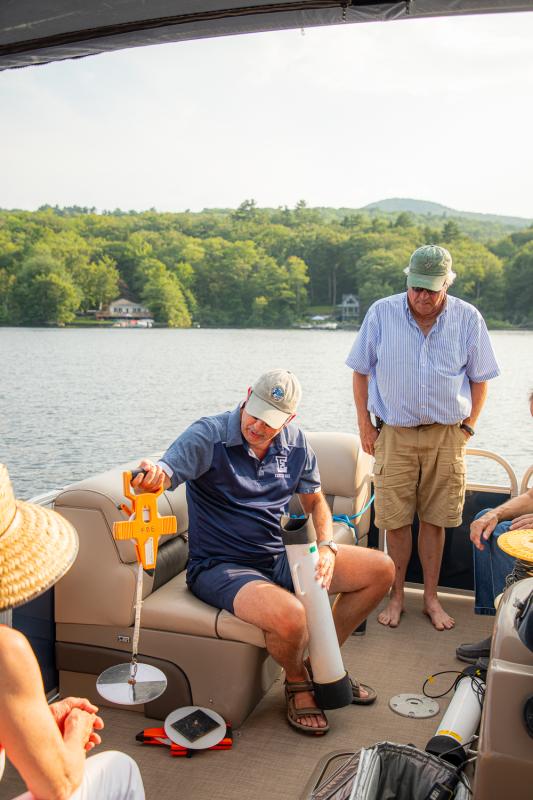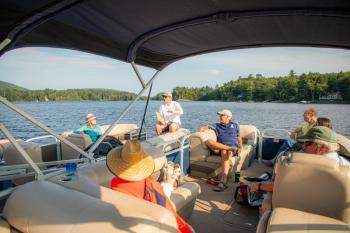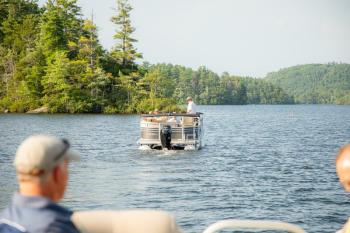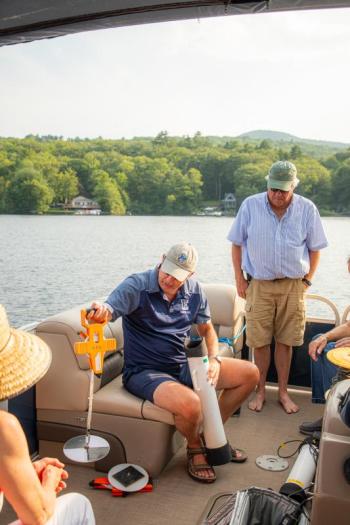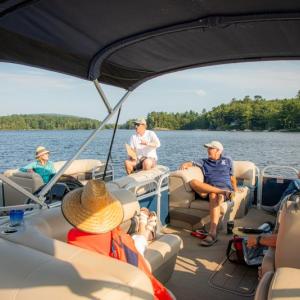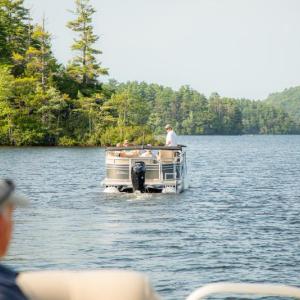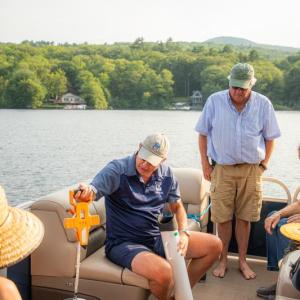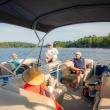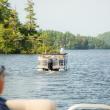Camden’s municipal Megunticook River Citizens Advisory Committee goes for watershed tour by water
On July 25, the Megunticook River Citizens Advisory Committee traveled by boat on the Megunticook Lake alongside Tim Trumbauer, executive director and Watershed Patrol of the Megunticook Watershed Association. The event, attended only by MRCAC members due to limited seating, proved to be a valuable learning experience as the committee delved into topics such as water quality and water level monitoring, all while gaining insight into the crucial role and mission of the MWA: “to protect, preserve, and restore the natural resources of the Megunticook watershed to ensure a healthy ecosystem for the benefit and enjoyment of all.”
The discussions during the boat ride were informative, covering a range of topics related to Megunticook Lake and its watershed.
Participants discussed the impacts of storm events and subsequent flooding, which not only affect property owners, but also have consequences for the natural environment, including sensitive areas like loon nests.
The significance of effective dam operation guidelines was emphasized, as well as the need to establish robust communication pathways between organizations and groups involved in watershed management.
Additionally, the boat tour shed light on the effects of warming lake temperatures on fish species, such as rainbow trout and bass, and water quality. Increasing water temperatures can increase the lake’s vulnerability to algal blooms and limit the available space with appropriate conditions for fish species to live. Moreover, ice out in Megunticook Lake has consistently occurred earlier in the spring than has been historically recorded.
The boat ride served as an engaging and interactive platform for MRCAC members to actively participate in discussions and raise pertinent questions concerning the health of the watershed.
During the tour, FB Environmental collected real-time measurements of water temperature, offering a snapshot of the current water quality conditions in the lake.
Just downstream, a more complete picture of water quality in the Megunticook River is currently being obtained using continuous data loggers. These loggers are deployed and maintained by MWA at seven locations along the river, measuring water temperature, dissolved oxygen, and conductivity (a measure of electrical current through water that is a proxy for pollution) every 30 minutes to see how water quality in the river responds to weather conditions and seasonal changes.
Tim Trumbauer and FB Environmental's expertise in water quality monitoring played a pivotal role in clarifying the processes at play within the lake's ecosystems and underscoring the necessity of adopting a watershed-wide approach for the Megunticook Watershed project.
By providing a platform for collaboration and dialogue, the boat tour helped MRCAC members gain insights into Megunticook Lake and the important work undertaken by the MWA. To follow along with the MWA, go to megunticook.org/. For more information on water levels and the dam operational guidelines, visit megunticook.org/water-levels.
To stay up-to-date on the MRCAC, visit megunticookrivercac.com/. To sign for the MRCAC newsletter or to ask a question, email megunticookriver@fbenvironmental.com.
Lauren Caffe is project assistant at FB Environmental.

